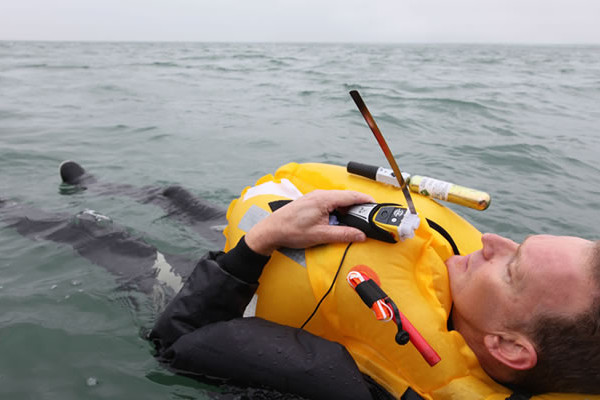
Last Summer on July 24th, 2015, two young and wealthy teens from Jupiter, Florida decided to take one of their family boats out for a fishing trip. Sadly, neither Perry Cohen and Austin Stephanos, both just 14 years old, ever made it home. Little did they know that they were heading directly into the path of a powerful storm. Then two days later, a local pilot reported seeing their capsized boat from the air with what may have possibly been one or both of the boys clinging to the capsized vessel for dear life. The boys’ latitude and longitude were immediately reported to the local authorities and a rescue mission was urgently launched by the Coast Guard. However, their efforts proved futile as the 19-foot Seacraft was not found anywhere in the reported vicinity.
It wasn’t until almost a full year later on March 18th, 2016 that their small fishing boat was finally discovered floating upside down by the Norwegian fishing vessel Edda Fjord all the way in the Sargasso sea, 100 miles off the coast of Bermuda. But of course, the two boys themselves were nowhere to be found. The only remaining trace of their presence was an iPhone and several other personal items. It was discovered that one of the boys had attempted to send a text message to his mother before they disappeared, but this did little to indicate their position or heading. While authorities leading the investigation are currently suspicious of foul play being possible a factor of the boys’ disappearances, most would agree that more could have been done if it were possible to locate their position as soon as they were in need of assistance instead of after it was far too late. Every mariner worth their (sea) salt already knows the boating safety basics such as lifejackets and flares, but in certain situations like this one, these contingencies may not be enough. Whatever the cause, the unfortunate disappearance of Perry Cohen and Austin Stephanos highlights the importance of a crucial, yet too often overlooked, piece of safety equipment that no boater should be without – a Personal Locator Beacon, or Personal GPS.
Just like in the world of real estate, any successful ocean rescue operation relies largely on one very important factor worth repeating again and again – location, location, location. If you’ve been lost at sea and the authorities are able to determine your exact position, then your chances of survival will increase exponentially. If they can’t, then the process could likely be far more difficult and time-consuming. Just like in the case of these two missing boys, leaving port without a way to be quickly and accurately found by the authorities could result in disaster. And while many vessels themselves do have trackable GPS technology installed aboard, sometimes that just isn’t enough. For example, if your boat were to capsize or you had to abandon ship for some reason, the GPS on your boat means that the Coast Guard may find the vessel, but by that time you may have been swept far away from the boat’s beacon and out to sea. The sea is unpredictable in so many ways, so you can never be too well-prepared when leaving port. Fortunately, a Personal Locator Beacon could help you out of a sticky situation like this one.
A Personal Locator Beacon is a portable device, typically the size of a small hand-held radio, that can be secured to your life vest if trouble should arise. Once manually activated, the device broadcasts an emergency signal to the Coast Guard and other emergency responder channels, letting them know that you are in need of assistance. They are also accurate within 100 feet, so if you somehow get separated from your vessel or fellow mariners, you won’t be too difficult to find. They also require little to no maintenance with a battery life of 5 to 6 years, so you won’t need to worry as long as it is nearby. Portable Locator Beacons are also great for use on the land as well for hiking, camping, and other outdoor activities. Not only are these devices compact and low-maintenance, but they’re also incredibly affordable, costing at around only $150 to $250 – and when you think about the safety of you and your loved ones, no price is too great. If you want to avoid a tragedy like the one that occurred last year in Jupiter, then no detail is too small to be overlooked, especially when it may just save your life.
![]()